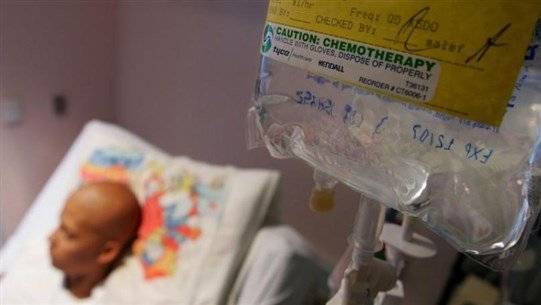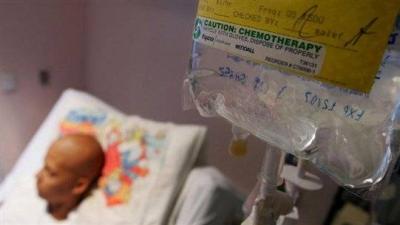Peace be upon you, beautiful Fawziya Fayyad. Months have passed since your departure, yet your radiant face and sweet spirit still accompany us. You remain the young woman who refused to surrender until her last breath in the face of a "state" that is heartless and dishonorable. Fawziya Fayyad, let us tell you about your fellow cancer patients who still cling to their last breath. Let us tell you about Alia, Maya, Rouba, Ali, Joseph, Wael, Mohammad, Andrei, Alisar, Alexi, and all those fighting in a land we fancied as a homeland but were mistaken. We apologize to you, Fawziya, or Fufu, as your loved ones fondly called you. Many are still suffering without even a morphine injection to alleviate their pain. We know you are in a better place, free from illness and suffering, but we will tell you about Lebanese men and women who endure tremendous hardships in a deaf, mute, blind state.
The good perish quickly, suddenly, without farewells, while the living-dead suffer. Look at their faces. Look at those who lose loved ones daily and strive to carry on with their lives in pain. Lebanese people have become like "robots," suffering and moving, exhausted in a cacophony of searching for life's essentials. Medicines—which are fundamental to life—are missing. What does the indifferent, incapable state think it can do for all these people? What a disgrace. Cancer medications and similarly aggressive illnesses are unavailable. Has our "state" considered what patients and the families and loved ones of those writhing in pain in the twenty-first century, without treatment, feel? Where is Minister of Health Firas Abiad? Will he celebrate in October with a pink event and recite poetry for us? He tweeted in September 2021: “Bearing responsibilities during crises is a duty to the nation and the community, and it is a trust for which we will be questioned in this world and the hereafter. Health is a right, and people care about what one will do to solve their problems.” Firas Abiad is trying? He has not done anything yet. No one can dispute that. It’s not his fault? He is the Minister of Health, and that is enough.
We contacted him to ask. It is noted that Firas Abiad always answers his cell phone, but does he have answers that satisfy the questioner, the patient, the wounded, and those for whom a dose of medicine stands between them and death? He replies: “We have started the trial phase for controlling and tracking medicines.” But, Your Excellency, there are patients who cannot wait for a trial phase of back-and-forth and promises? He cuts in, saying: “Nawal... Nawal... the funds provided to us are insufficient, and this is what I always repeat. If they do not increase the funds we receive, it will be difficult to secure the medicine. The ministry used to receive 140 million for purchasing medicines; now we receive 25 million, and you expect us not to feel the difference?” He continues: “A few days ago, specifically last Thursday, we achieved ‘two things’: We received a promise from Prime Minister Najib Mikati to increase five million dollars for purchasing medicines for cancer and chronic diseases. This will enable us, along with implementing a medicine tracking system, to significantly alleviate the burden on people.”
Deposits of Parties and Missing Medicine
Do we understand from the Minister of Health's words that he is optimistic? He replies: “There are no solutions without funding. A reconsideration of the health policies previously implemented for treating cancer diseases is necessary.” Is the theft of medicines from "Beit Abih" to the ministry due to old health policies? He answers: “I issued a statement on the matter and formed a committee to investigate the information about the loss of cancer medicines from the Ministry of Public Health warehouses. The ministry takes the issue very seriously.” It seems that another investigation has been added to the numerous investigation files regarding crimes whose perpetrators rely on the short memory of the Lebanese. In any case, Hani Nassar, head of the Barbara Nassar Association for Cancer Patients Support, was the first to raise his voice for those waiting hopelessly on the fringes of the Ministry of Health and guaranteeing institutions, panting for medicine, recently announcing the loss of medicines that had just arrived from humanitarian organizations, speaking about party deposits in the Ministry of Health. Who are these parties that have deposits there? And why did he not name these parties? The activist Hani Nassar answers: “It is no secret who holds the reins in the ministry. Anyone who goes to Karantina knows that there are VIPs and others VVIP, and there are those who call, saying: ‘Let these pass.’ The quota that some parties take has been known for a long time. So, there’s no need for me to name them, but I say with a clear mouth: ‘Enough, the world is dying, and medicines are being smuggled.’ The investigation conducted by the Ministry of Health will focus on four medicines: Obdivo, Tecentriq, Ibrance, and Xtandi, and there are dozens of other medicines affected by smuggling. There are 455 registered medicines for cancer, and only ten are manufactured in Lebanon, with their raw materials coming from abroad. Therefore, it is impossible to say that we will rely on locally manufactured medicines. There is absolutely no possibility of manufacturing cancer medicines in Lebanon, except for old medicines. All the new revolutionary medicines in the world of treatments cannot be produced locally. When we hear someone say we will rely on locally manufactured or cheap therapeutic medicines, it’s as if they are condemning cancer patients to death.”
Tracking Mechanisms
We ask former Health Minister Ghassan Hasbani about his information regarding the missing medicines in Karantina’s warehouse and Hani Nassar's comments about the role of parties in their disappearance and the current Minister of Health's plan to track every medicine that will arrive in Lebanon. He replies: “Let him name the parties that are stealing the medicines,” and continues: “There are groups, combinations, and fictitious names. There is a network operating in this matter at the expense of a cancer patient’s health. When I was the Minister of Health in 2018, I set up a tracking plan like the one the current Minister of Health is discussing. We created it, set up the mechanism and barcode, and conducted a trial on it. After I left, work stopped at the pace we established. I hope with all my heart that today’s words are accompanied by action because five years have passed without implementation. Work should start quickly, and the minister should press in this direction, as it was not a priority for some ministers, although it can combat smuggling ‘right and left.’ We discussed the matter in the parliamentary health committee to control the situation and put the mechanisms we launched into action. Now Minister Abiad says he will work to revive this mechanism, and the matter needs rapid implementation, knowing that it is not the only solution but should be accompanied by securing medicine at a fair price. There are no obstacles to its implementation if there is a genuine intention.”
Ghassan Hasbani provides numbers: “There were 25,000 cancer patients and other chronic diseases receiving their medicines from the Ministry of Health. The number of cancer patients was 18,000, and the Ministry of Health needs fifty million dollars to secure medicine for them.”
Patients Do Not Wait
Returning to Hani Nassar, what about the numbers he has? He replies: “According to the latest statistics, there are 12,000 new cancer cases annually in Lebanon. In 2020, it was found that 29,000 cases are receiving treatment, and in my estimation, the number is larger because treating a cancer patient requires more than a year. If we assume that the new cases each year are 12,000, this means there are now no less than 36,000 patients in Lebanon, and that is if those who have recovered in the past two years are counted.”
Will the promised tracking plan benefit? Will it lift some of the burden off cancer patients? Nassar answers: “Minister of Health Firas Abiad calls for action, but the slow pace in processing matters has a negative impact. Everyone is working in slow motion while cancer patients do not wait. Yesterday, someone pointed a gun at a bank manager to treat his father, and I expect dozens of cancer patients' families to do the same. One of those agonizing over his mother's cancer, originally from Tripoli, told me yesterday: "Every time I see my mother in pain, I go up on the roof of the building and start shooting in the air. I could go crazy. You cannot imagine the conditions that this young man and many others live in. The Minister of Health promised us that the tracking plan would start in the first two weeks of September. We are waiting. He said he would start in six hospitals and with nine medicines at first as a primary test. Then, the plan would be implemented in other hospitals that need to enter into the system.” Here, Nassar continues: “I asked the Minister of Health what if another minister comes after you and stops this plan and returns to the traditional plan? Therefore, our work now must be in Parliament to urge it to pass a law that only allows this plan to follow. This law is the most important today. It needs to be passed so that we protect the rights of cancer patients.”
What are his expectations regarding the investigation into the missing medicines from Karantina’s warehouses? Nassar replies: “I will tell you the result now: It will be said that during the employees’ strike, ‘we will take care of some patients and issued exceptions, and the quantity was not large,’ and that’s it. This is how they will respond to the looting of medicines. We are not obliged to see our patients die due to negligence in treatment.” He continues: “There are medicines that arrived sufficient for cancer patients for at least two months, but what happened is that the patient who took the first box returned to get the second, and he was told: there isn’t any. The drug importers are saying this medicine and that medicine are out of stock. The reason is that there are many forged prescriptions. Some are selling medicines on the black market. A medicine available on the black market for one thousand dollars, while its value in the ministry is four million and five hundred thousand lira, or 150 dollars. All our patients are now at stage four of cancer due to not taking their medicine. Implementing a mechanization and tracking plan is the last hope in the matter. If it is not applied to thousands, farewell.”
Will the Minister of Health “work”? Let's assume. The tracking mechanisms have existed since 2018 during the tenure of then Minister of Health Ghassan Hasbani. All it should take is a push of a button, unless smuggling mafias are more powerful. September is around the corner. Cancer patients are in their final stages. The Lebanese who endure in darkness, without bread, medicine, or water may sign their endurance, but these cancer patients will not. And then, the description of the existing state as a killer will be valid again! And then, those who vent their frustration by shooting on their rooftops in anger will aim their guns in another direction. Is there anyone listening? Is there anyone who deals seriously with an issue of life or death?




